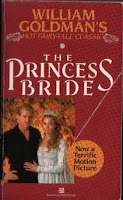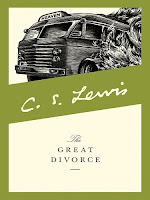Well, it's been far too long since I've
done any blogging. However, I am happy to report that my time has
been filled with a myriad of other equally wonderful and worthwhile
things, one of which is reading. Confession: technically, I
shouldn't have time to read “just for fun”. As a journalist
major, I'm supposed to be reading the newspaper every day and at
least one magazine a week, plus my textbooks and extra material
(although I should probably be honest and admit that the whole
newspaper-a-day thing isn't happening). I love studying, I truly do.
But in the past month, I have realized two things: (1) Reading for
enjoyment MUST happen at some point in the week. End of story. Or I
will go insane. And (2), that if I want to make time for said
reading, no matter how much those words “making time” strike fear
into my procrastinator's heart, I have to fight for it. My
admiration for those people who instinctively know how to maximize
every single minute of their day is boundless.
Despite my uncanny ability to let
time get away from me (I like to think of it as an anti-superpower),
I have learned to snag reading opportunities here and there: on the
bus, in the break room at work, late at night when I'm supposed to be
sleeping, etc. But I no longer have the time to devour books in one
sitting like I did in high school. Gone are the days of coming home
every week with stacks of books and ability to finish all of them
at my leisure. I think back rather wistfully to the weekend in
eleventh grade in which I inhaled the entirety of Victor Hugo's The
Hunchback of Notre Dame, and I wonder, “How on earth did I do
that?”
At the same time, even though part
of me misses those days, I'm beginning to believe that my slowed-down
reading pace isn't necessarily a bad thing. Why? Well, partly
because of this wonderful book I just finished called Reading Like
A Writer by Francine Prose. (And by the way, isn't that name
almost too perfect for an author? Kinda makes you suspicious...
hmmm...) I read her book for the first time as a junior in high
school and absolutely loved it. Last month I picked it up again and
just finished it last week. My verdict: everyone – yes, I mean
EVERYONE – who loves books and the written word should read this.
As in, go. Now. To the library.
Until I read this book, I had
never heard of close reading before. Maybe you haven't either.
There are lots of ways to define the term, but I'm gonna be all
scholarly and quote the Wikipedia article (ahem): “Close reading
describes, in literary criticism, the careful, sustained
interpretation of a brief passage of text. Such a reading places
great emphasis on the particular over the general, paying close
attention to individual words, syntax, and the order in which
sentences and ideas unfold as they are read.” (Hey, not too
shabby, Wikipedia.) In the first chapter, Prose gives an in-depth
description of close reading, providing groundwork for the rest of
her book in which she analyzes short stories, essays, and novels from
a wide gamut of authors (Jane Austen, Scott F. Fitzgerald, Flannery
O'Conner, Ernest Hemingway, Franz Kafka, Shakespeare, Leo Tolstoy,
Henry James, and Emily Brontë,
just to name a few). And not just works from long-dead writers of
classics, either. She references a handful of present-day novelists
as well.
In
eleven chapters, Prose builds from words, sentences, and paragraphs,
to narration, character, dialogue, detail, and gesture. But she
doesn't teach
you anything about writing, at least not directly. Instead, she
quotes beautiful passages of literary works, ranging in length from a
few sentences to several pages, adds her own musings, and allows you
to ponder and make observations. If anything, the overarching theme
of the book is that for every literary rule you encounter, you
will find an exception.
As I finished each chapter over the last five weeks, I found myself
slowing to a crawl, not wanting the book to be over. I carried it to
work with me, sneaked pages here and there on my lunch break, and
gave myself a headache reading on the bus. When I found a quoted
passage that I particularly liked, I'd made a note of the author and
title and rush to the library after work.
As
a junior paging through Reading
Like A Writer, I
remember feeling like I was learning to read for the first time.
Prose made reading seem like an art, like wine-tasting instead of
gobbling down a feast in one sitting. It became something more
purposeful, deliberate, and overall more delightful. And both times
after finishing her book, I found myself more inspired to write –
and equipped with the courage to do so. Take that,
Inner Editor.
Oh,
and by the way... another perk to checking out Reading
Like A Writer is for
the wonderful book list included at the end, entitled “Books To Be
Read Immediately.” She's got some seriously fantastic titles in
there. And here's a quote for you, because I like quotes and this
one seems to sum it all up:
“If
we want to write, it makes sense to read – and to read like a
writer. If we wanted to grow roses, we would want to visit rose
gardens and try to see them the way that a rose gardener would.” –
Francine Prose, Reading
Like A Writer

















